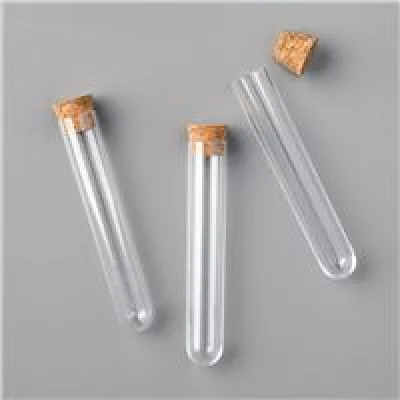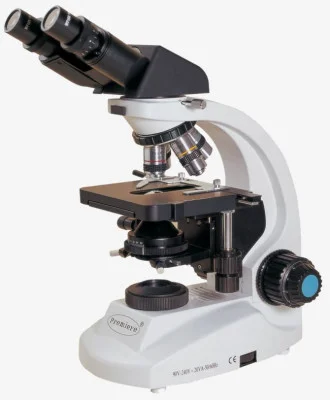
The Science of Trust: Choosing the Right Laboratory Tubes for Chemicals
The Science of Trust: Choosing the Right Laboratory Tubes for Chemicals
In the intricate world of scientific research, trust isn't just an emotion—it’s the very foundation of discovery. When a scientist steps into a lab, they place their trust not only in their skills but also in the tools they use. Among these, laboratory tubes for chemicals play a critical yet often underestimated role.
Imagine this:
A scientist spends weeks preparing a sensitive chemical reaction, monitoring every step with precision. But the tube holding the solution starts reacting with the chemical, releasing unwanted ions and skewing the results. All the hard work—lost. It’s more than disappointing; it’s a setback that could cost time, money, and even credibility.
This is why choosing the right laboratory tube for chemicals isn’t a choice—it’s a responsibility.
Why Trust Matters in Laboratory Tubes
Whether you’re a researcher, student, or industrial chemist, the stakes are high. The tube holding your chemicals could affect:
-
Purity of the reaction
-
Stability of the chemical
-
Safety of your lab environment
-
Accuracy of your experiment results
The right laboratory tube ensures peace of mind, allowing you to focus on your research—not worrying about contamination, leakage, or material failure.
Common Types of Laboratory Tubes and Their Uses Borosilicate Glass Tubes—The Gold Standard
Borosilicate glass is a trusted choice for many chemical applications. Known for its excellent thermal resistance and chemical inertness, it’s ideal for heating, mixing, or storing sensitive chemicals.
Example:
A researcher working on acid-base titration prefers borosilicate test tubes to avoid reactions that can occur with ordinary glass or plastic. The result? Consistent, reliable readings every time.
Polypropylene (PP) Tubes—The Versatile Choice
Polypropylene tubes are widely used for their chemical resistance, especially with organic solvents and weak acids. They’re lightweight, durable, and cost-effective—making them a favorite in research labs.
Example:
A biochemist storing enzyme solutions uses polypropylene centrifuge tubes because they don’t leach chemicals, preserving enzyme activity over time.
Polystyrene Tubes—For Disposable Applications
Polystyrene tubes are used mainly for short-term or disposable applications, especially in biological labs. While not ideal for strong chemicals, they’re perfect for sample collection and routine analysis.
Example:
In a pathology lab, technicians use polystyrene tubes for blood sample collection, ensuring hygienic disposal after single use.
Fluoropolymer Tubes—The Specialist’s Choice
These tubes, such as PTFE (Teflon), are known for their non-stick surface and resistance to aggressive chemicals, acids, and solvents. They’re used in high-stakes experiments where nothing less than perfection will do.
Example:
Pharmaceutical researchers handling hydrofluoric acid—a highly corrosive substance—rely on PTFE tubes to avoid catastrophic failures.
Real-Life Impact: How the Wrong Tube Can Lead to Disaster
It’s not just about the theory. The wrong choice of tube can lead to serious consequences.
Case 1: Leaking Hazardous Chemicals
A lab technician stored nitric acid in a standard plastic tube. The acid degraded the tube, causing a leak. Result? Damage to equipment, risk to safety, and a halt in lab operations.
The Right Way: Use chemical-resistant borosilicate glass or PTFE tubes for highly corrosive chemicals.
Case 2: Compromised Research Data
A food testing lab used cheap plastic tubes for storing oil samples. The tubes reacted with the oils, altering the fatty acid profile. The report had to be retracted — costing the lab its client’s trust.
The Right Way: Use inert materials like borosilicate glass or certified food-grade plastics for sensitive chemical testing.
Case 3: Unexpected Breakage Under Pressure
A student stored a reactive compound in a thin-walled glass tube. Under slight heating, the tube cracked, posing a risk of chemical exposure.
The Right Way: Always use lab-grade tubes designed for thermal or pressure applications.
How to Choose the Right Laboratory Tube for Chemicals
Here are key factors to consider before making your choice:
Chemical Compatibility—Check if the tube material is resistant to the chemical you’re handling.
Temperature Resistance—For reactions involving heat, choose tubes like borosilicate glass that withstand thermal stress.
Pressure Handling—Centrifuge or pressurized experiments require tubes rated for high stress.
Durability & Safety—Choose certified lab-grade tubes that meet industry standards for safety and quality.
Supplier Trustworthiness—Always buy from reliable sources that guarantee authenticity and product certification.
The Emotional Core: Why This Matters to You
As a scientist, your work impacts lives—whether through research, medicine, or innovation. Trusting the right laboratory equipment isn’t a luxury; it’s the backbone of your success.
At ,we aren’t just selling tubes. We’re empowering breakthroughs. Our curated range of chemicals and tubes is crafted with the highest quality standards, ensuring your experiments stay safe, pure, and reliable.
Because when science meets trust, innovation happens.
Check out our trusted collection of laboratory tubes now—where science meets safety and trust meets performance.
Frequently Asked Questions (FAQs)
Q1. Why is choosing the right laboratory tube important for chemicals?
The right laboratory tube prevents chemical reactions with the tube material, safeguards your experiment from contamination, and ensures accurate results. It also protects your lab environment from hazardous leaks or breakage.
Q2. What materials are best for chemical-resistant tubes?
-
Borosilicate Glass: For high-temperature and chemical resistance.
-
Polypropylene (PP): For general chemical storage and centrifugation.
-
PTFE (Teflon): For highly aggressive chemicals and specialized applications.
-
Polystyrene: For disposable use in non-aggressive chemical applications.
Q3. Can wrong tubes affect experimental results?
Absolutely! The wrong tube can leach substances, react with chemicals, cause contamination, and even skew critical data—compromising the integrity of your research.
Q4. How do I know if a tube is suitable for my chemical?
Always check the chemical compatibility chart provided by the manufacturer. Reputable suppliers provide clear guidelines on material usage based on chemical types.
Q5. Where can I buy trusted laboratory tubes and chemicals?
Visit and explore a premium range of certified laboratory tubes, chemicals, and lab essentials. We guarantee quality, safety, and trust with every product.






